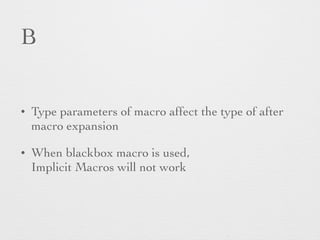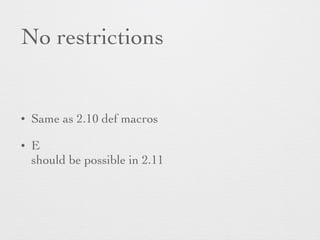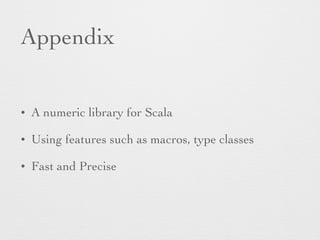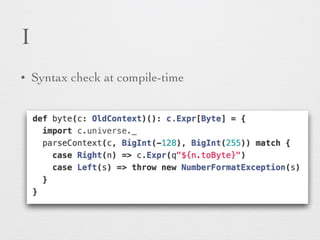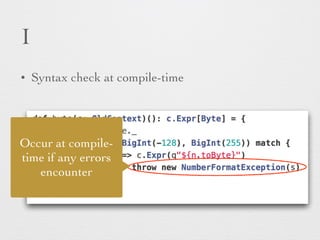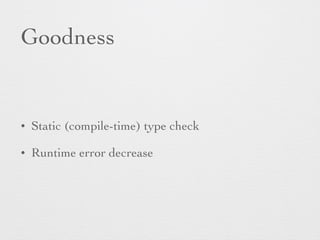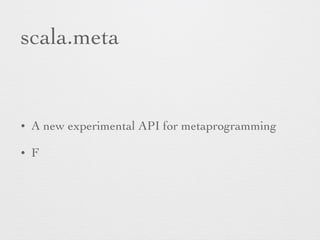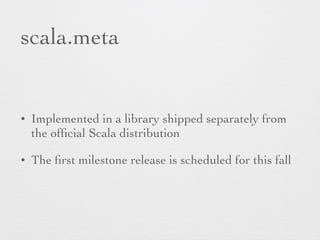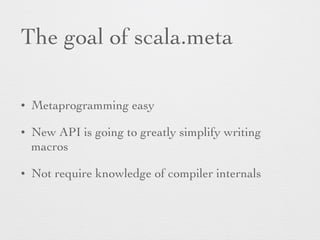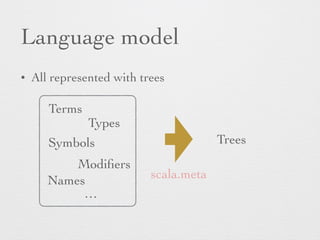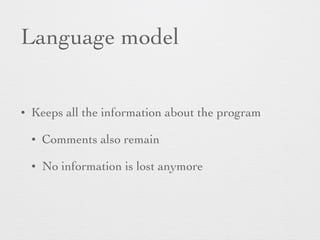Macros allow code to generate code by replacing expressions during compilation. They enable simplifying code and improving efficiency. While macros are powerful, their implementation can be complex, requiring knowledge of compiler internals. The scala.meta library aims to simplify metaprogramming by representing programs as trees without losing information, making macros easier to write without deep compiler expertise.





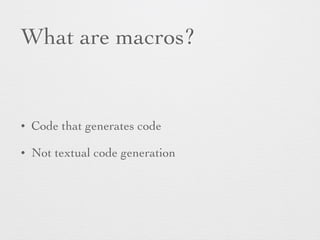
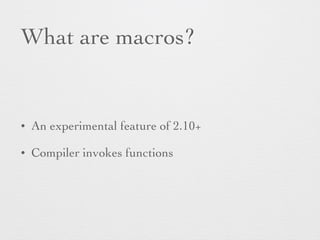



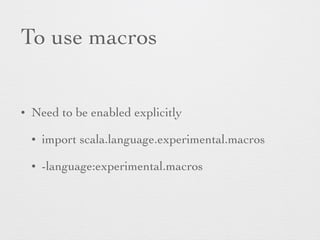
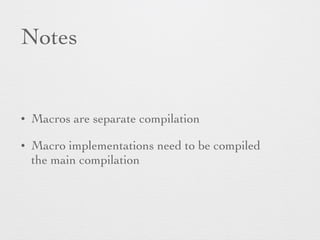

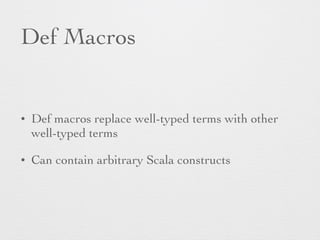


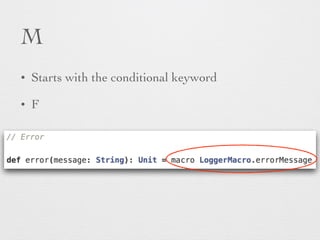
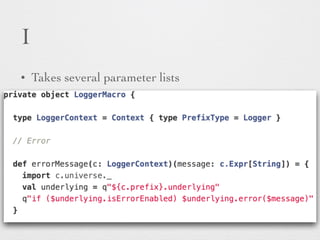
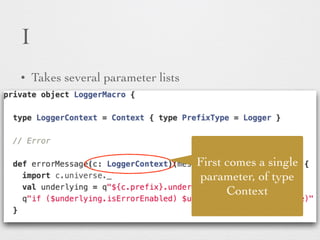

![I
• The original macro parameter has
• type T
• A macro implementation parameter has
• type c.Expr[T]](https://image.slidesharecdn.com/whatsmacros-140912023158-phpapp01/85/What-s-a-macro-Learning-by-Examples-Scala-21-320.jpg)
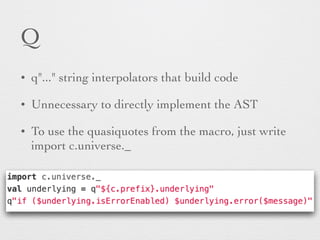




![Where?
case class Cat(name: String, age: Int)
!
// your test case
val cat = Cat(name = "Tom", age = 2)
cat must matchA[Cat].name("Tom")
you call](https://image.slidesharecdn.com/whatsmacros-140912023158-phpapp01/85/What-s-a-macro-Learning-by-Examples-Scala-27-320.jpg)
![Where?
replaced by macros
def matchACat(
name: Matcher[String] = AlwaysMatcher(),
age: Matcher[Int] = AlwaysMatcher()
): Matcher[Cat] =
name ^^ {(cat: Cat) => cat.name} and
age ^^ {(cat: Cat) => cat.age}](https://image.slidesharecdn.com/whatsmacros-140912023158-phpapp01/85/What-s-a-macro-Learning-by-Examples-Scala-28-320.jpg)
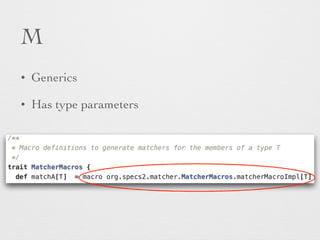
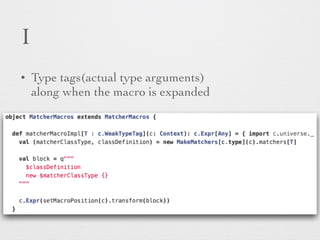
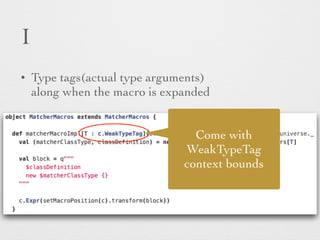



![Why distinction?
• Type specification of macro is
class Foo
class Bar extends Foo
Scala 2.10
!
object FooExample {
def foo: Foo = macro foo_impl
def foo_impl(c: Context): c.Expr[Foo] =
c.Expr[Foo](c.universe.reify(new Bar).tree)
}](https://image.slidesharecdn.com/whatsmacros-140912023158-phpapp01/85/What-s-a-macro-Learning-by-Examples-Scala-35-320.jpg)

